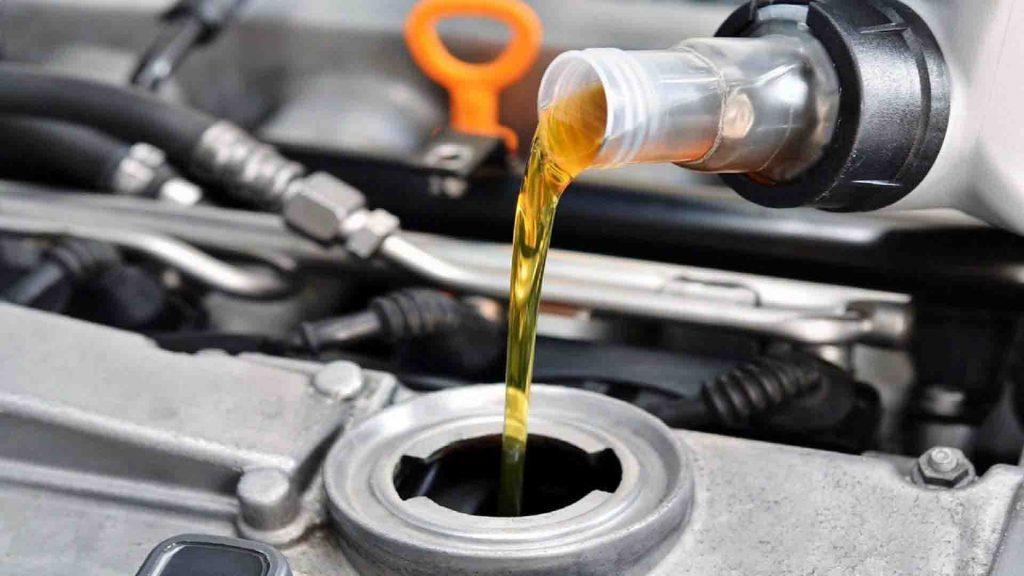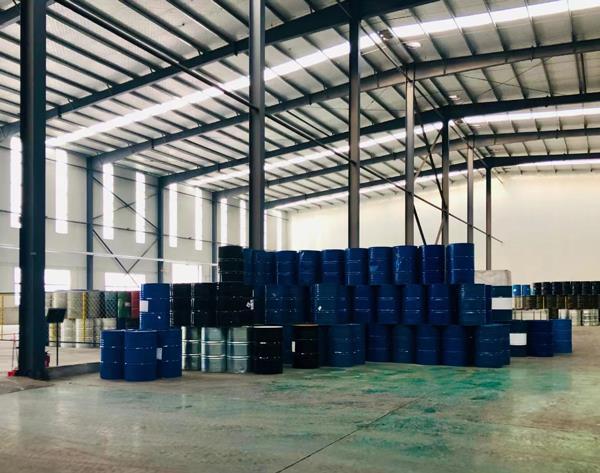

Why Forward Thinking Manufacturers
When
What

The Shift from Maintenance Item to Strategic Asset
In the past, lubricants were treated as a background cost something to be changed at regular intervals and forgotten about. But advanced manufacturers now view them as strategic assets. Why? Every improvement in how machines operate, even at the micro level of friction or temperature control, creates ripple effects across energy use, machine life, and productivity.
By investing in high-performance lubricants, forward-thinking companies shift from a reactive approach to a proactive one. Instead of replacing parts after failure, they extend their lifespan. Instead of consuming more energy to offset inefficiency, they reduce demand at the source.


The Hidden Economics of Lubricants
Manufacturers who prioritize innovation are not only thinking about today’s costs but tomorrow’s savings. Lubricants sit at the intersection of both.
Reduced operational waste: Better formulations mean longer service intervals, less disposal, and fewer interruptions.
Optimized resource use: Cutting energy consumption by reducing friction doesn’t just save money; it supports climate and compliance goals.
Smoother supply chains: Working with trusted partners ensures consistent quality and avoids disruptions that can halt production lines.
These economic factors aren’t always visible in spreadsheets at first glance, but forward-thinking leaders recognize them as long-term competitive advantages.

A Culture of Continuous Improvement
The decision to invest in better lubricants often reflects a company’s broader culture. Forwardthinking manufacturers embrace the principle of continuous improvement. They don’t just wait for regulations to force change; they actively seek smarter practices.
For example, some have begun integrating digital tools that track lubricant performance in real time, allowing predictive adjustments. Others partner with lubricant suppliers who provide not only products but also technical expertise and insights. These partnerships become ecosystems of innovation, driving better outcomes across production.


Beyond the Factory Floor
These lubricants influence more than machinery they also shape a manufacturer’s environmental and social reputation. In markets where sustainability is increasingly tied to contracts and consumer trust, using advanced formulations is no longer optional.
Forward-thinking companies are choosing solutions that minimize waste, extend equipment lifespans, and meet environmental standards. Some even highlight these choices in their corporate sustainability reports, showing investors and customers alike that responsibility is embedded in their operations. In this way, lubricants move from being invisible to becoming part of a company’s public narrative

Lessons from Industry Leaders
Looking at global manufacturing leaders, a clear pattern emerges: those investing in better lubricants also tend to invest in better training, smarter technologies, and stronger supplier relationships.
These companies see lubricants not just as a purchase but as part of a strategy.
Automotive manufacturers, for instance, use advanced lubricants to reduce emissions while improving performance.
Heavy machinery producers extend warranty coverage when customers use approved high-performance products, acknowledging the role of lubrication in asset longevity.
Food and pharmaceutical industries rely on specialized lubricants to meet strict compliance standards, recognizing that reliability is as much about reputation as it is about efficiency.
The lesson is clear: forward-thinking manufacturers don’t isolate lubricants from their broader vision they integrate them. They view lubricants as part of their innovation strategy, aligning product performance with sustainability goals.
By working closely with suppliers and distributors, they create ecosystems where reliability and efficiency reinforce each other. This integration ensures that every drop of lubricant contributes not only to machine health but also to long-term business growth.
Thinking Ahead: Lubricants as Enablers of Innovation
Nowadays, investing in better lubricants is not about avoiding problems it’s about enabling progress. These materials make it possible for machines to run faster, for plants to operate longer without interruption, and for businesses to scale without proportionally increasing energy use or waste.
As technology continues to evolve, lubricants will remain a critical enabler of innovation. From AI-driven maintenance systems to sustainable bulk supply methods, they are quietly aligning industry with the future of smarter, greener production. They are no longer passive fluids but active components of digitalized ecosystems. In many ways, lubricants are shaping the roadmap for how efficiency, sustainability, and technology converge in modern manufacturing.
They support manufacturers in adapting to new regulations, reducing environmental impact while improving operational resilience. In this way, lubricants are not just supporting machinery they are shaping the very foundation of next-generation manufacturing.



FAQs
Why are lubricants a focus for forward-thinking manufacturers?
They influence machine life, energy use, service reliability, and operational sustainability, making them a critical factor in long-term efficiency and competitiveness.
How do high performance lubricants differ from standard ones?
They are engineered with advanced additives and base oils, allowing machinery to operate under extreme conditions while reducing energy consumption and wear.
Do lubricant suppliers offer more than just products?
Yes. Many reliable lubricant suppliers provide technical expertise, condition analysis, and guidance to ensure manufacturers use lubricants strategically, not just routinely.
How do industrial lubricant distributors support large manufacturers?
The trustworthy industrial lubricant distributors provide reliable access across regions, offer staff training, and integrate logistics solutions that prevent costly supply interruptions.
Are oil lubricants still relevant in modern industries?
Absolutely. While synthetic and eco-friendly options grow, oil lubricants remain vital, often reformulated to meet new performance and environmental standards.



Conclusion
Forward-thinking manufacturers don’t just invest in robotics, software, or automation they also invest in the fundamentals that make those technologies possible. Lubricants are one such fundamental. By choosing better formulations, collaborating with reliable suppliers, and embedding sustainability into their strategies, manufacturers create operations that are not only more efficient but also future-ready.
In a competitive world, it’s not enough to keep machines running. The real challenge is keeping them running smarter, cleaner, and longer. That’s why forward-thinking companies see lubricants not as an expense but as an investment in resilience and growth.
